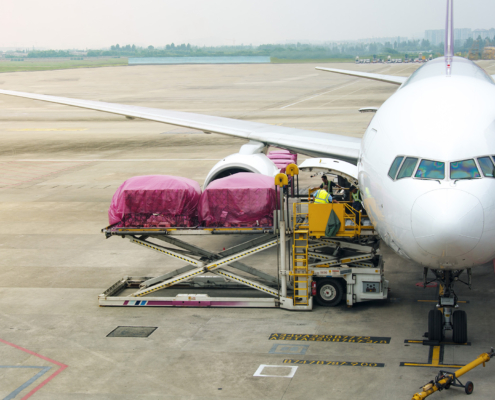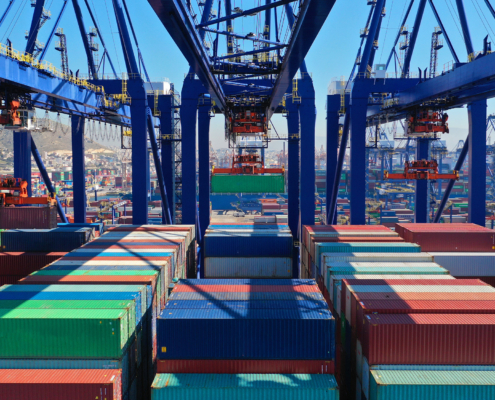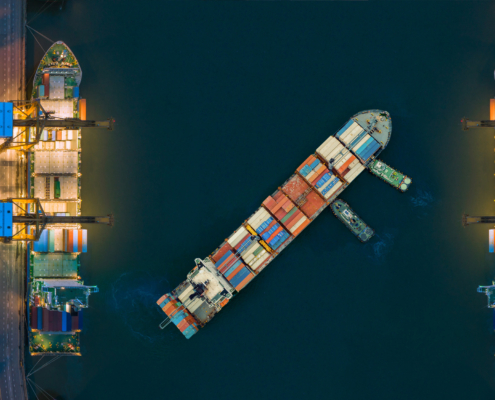 https://cargotransinc.com/wp-content/uploads/2025/02/Airplane-being-loaded-with-packages.jpg
1250
2000
Abstrakt Marketing
https://cargotransinc.com/wp-content/uploads/2025/06/CargoTrans-Logo-Color-300x104.png
Abstrakt Marketing2025-02-25 15:09:022025-08-19 20:20:24Enhancing Retail Supply Chains: The Role of Air Freight in Meeting Consumer Demands
https://cargotransinc.com/wp-content/uploads/2025/02/Airplane-being-loaded-with-packages.jpg
1250
2000
Abstrakt Marketing
https://cargotransinc.com/wp-content/uploads/2025/06/CargoTrans-Logo-Color-300x104.png
Abstrakt Marketing2025-02-25 15:09:022025-08-19 20:20:24Enhancing Retail Supply Chains: The Role of Air Freight in Meeting Consumer DemandsA Comprehensive Guide for International Freight Forwarding
International freight forwarding plays a big role in the movement of goods across borders. Freight forwarders act as intermediaries between shippers and transportation services, managing every aspect of the logistics process from origin to destination. They coordinate with carriers, manage documentation, and ensure regulatory compliance, making them indispensable for businesses engaged in international trade.
This blog explores the key considerations for businesses looking to leverage international freight forwarding services, from transportation options and transit times to risk mitigation strategies and cost management.
What is International Freight Forwarding?
International freight forwarding involves the organization and coordination of shipments from one country to another. Freight forwarders handle the logistics of transporting goods through various modes of transportation, including air, sea, rail, and trucking. The primary services offered by freight forwarders include:
- Arranging transportation of goods from origin to destination
- Managing documentation, such as customs forms and bills of lading
- Ensuring compliance with import/export regulations
- Offering warehousing, consolidation, and distribution services
- Facilitating cargo insurance and risk management
Freight forwarders serve as essential partners for companies, simplifying the supply chain by handling the intricate details of shipping, customs clearance, and regulatory compliance. They make sure that shipments arrive safely, on time, and within budget, making international trade more accessible for businesses of all sizes.
5 Key Considerations for International Freight Forwarding
Before getting too deep into your logistics management, be sure to talk through the following international shipment considerations:
1. Choosing the Right Transportation Mode
Businesses need to carefully choose the transportation mode that best suits their needs. The four primary options—air, ocean, rail, and trucking—each have their advantages and limitations. Selecting the most appropriate mode depends on factors such as:
- Transit Time: Air freight is the fastest transportation method, suitable for urgent shipments, but comes at a higher cost. Ocean freight is more economical but significantly slower. Rail and trucking are common for inland transportation, with rail offering a balance between speed and cost for certain routes.
- Cost: Ocean freight is typically the most cost-effective for large-volume shipments, but air freight offers better value for smaller, high-value items that require fast delivery. Rail and trucking costs vary based on the route, distance, and fuel prices.
- Reliability: Air and ocean freight are generally more reliable for long-distance international shipments, while rail and trucking can be affected by local infrastructure, road conditions, or congestion. Consistent and reliable carriers are essential for timely deliveries.
- Cargo Type: The nature of the goods being shipped also plays a crucial role in determining the transportation mode. Perishable goods, for instance, may require air freight, while heavy or bulky items are better suited for ocean or rail transport. Temperature-sensitive or hazardous materials may need specialized handling.
2. Flexibility in Route Planning
Global market conditions, such as fluctuating fuel prices, port congestion, or political unrest, can disrupt shipping routes and schedules. To mitigate these challenges, businesses should:
- Choose Carriers With Multiple Route Options: Work with freight forwarders who offer diverse transportation routes and contingency plans in case of disruptions.
- Plan for Seasonal Peaks and Market Volatility: Certain times of the year, such as holidays or harvest seasons, can lead to increased demand for shipping capacity and longer transit times. Businesses should plan their shipments around these periods and consider alternative routes or transportation modes if necessary.
- Adjust for Customer Demands: Customer needs can change quickly, requiring businesses to adapt their shipping schedules and routes to ensure timely deliveries. Having flexible route planning in place allows companies to accommodate last-minute changes without significant delays.
3. International Shipping Costs
International shipping involves several cost components that businesses must account for when freight forwarding. These include:
- Freight Rates: The base cost for transporting goods depends on the mode of transport, distance, and shipment volume. Air freight is priced by weight and volume, while ocean freight is typically charged by container size.
- Customs Duties and Taxes: Different countries impose various duties, taxes, and fees on imported goods. Freight forwarders assist with calculating and paying these costs to ensure compliance with customs regulations.
- Fuel Surcharges: Fuel prices fluctuate, and most carriers add fuel surcharges to shipping rates to account for this volatility.
- Handling Fees: Charges for loading, unloading, warehousing, and terminal handling are standard in international shipping.
- Insurance Costs: Insuring shipments against damage, theft, or loss is critical, especially for high-value goods.
4. Risk Management and Mitigation
International shipments come with inherent risks, including damage, loss, theft, or regulatory non-compliance. To minimize these risks, businesses should implement robust risk management strategies, such as:
- Cargo Insurance: Purchasing comprehensive cargo insurance is essential for protecting shipments from damage, theft, or loss. Many freight forwarders offer insurance services or can recommend reputable providers.
- Security Measures: Ensuring that shipments are handled securely is crucial to preventing theft or tampering. Freight forwarders can provide additional security measures such as GPS tracking, tamper-proof seals, and bonded warehousing.
- Compliance With Regulations: Failing to comply with customs and trade regulations can result in delays, fines, or the seizure of goods. Freight forwarders are well-versed in regulatory requirements and ensure that all documentation and processes comply with the relevant laws.
- Due Diligence on Service Providers: Businesses should thoroughly vet their freight forwarders and transportation carriers to ensure a strong track record of reliability, compliance, and customer service. Checking references, certifications, and reviews can help avoid working with subpar providers.
5. The Role of Technology in International Freight Forwarding
Technology has revolutionized international freight forwarding, enabling greater visibility and control over shipments. Key technological advancements include:
- Real-Time Tracking: Modern freight forwarders offer real-time tracking of shipments, allowing businesses to monitor the location and status of their goods at any time. This transparency reduces the risk of delays and enables proactive decision-making.
- Automation in Documentation: Automating the submission of customs documents and trade compliance forms reduces the risk of errors and speeds up the customs clearance process.
- Data Analytics for Route Optimization: Freight forwarders use data analytics to analyze routes, transit times, and market conditions to recommend the most efficient and cost-effective shipping options.
Taking your freight out of the country? We’ll manage every step of the process for your supply chain.
Signs You Need a New Logistics Management Partner
If your current logistics management isn’t meeting your needs, it may be time to consider a new partner. Here are signs you need a fresh approach:
- Missed Deadlines: Frequent delays in deliveries can disrupt your operations and damage your reputation.
- Lack of Transparency: Difficulty accessing shipment data or tracking information can lead to frustration and missed opportunities.
- Poor Communication: If your logistics partner is unresponsive or fails to provide timely updates, it’s a red flag.
- Increasing Costs: Unexpected or rising costs without clear justification could indicate inefficiency in your logistics strategy.
- Inconsistent Service Quality: Frequent errors or varying service levels signal a lack of reliability.
Key Takeaways for Businesses Engaging in International Freight Forwarding
Don’t worry for your operations to be struggling from the signs above. Always work with the professionals when it comes to managing your cargo:
- Partner With a Reliable Freight Forwarder: Choose a freight forwarder with experience in your industry and a proven track record of success in managing international shipments.
- Understand the Costs: Be aware of the various cost components of international shipping and work with your forwarder to develop a clear budget.
- Prioritize Risk Management: Implement comprehensive risk mitigation strategies, including insurance, security measures, and regulatory compliance.
- Stay Flexible and Adaptable: Global trade conditions can change rapidly. Ensure that your shipping plans are flexible enough to accommodate unexpected challenges.
Ship Both Domestic and Abroad With the CargoTrans’ Experts By Your Side
CargoTrans streamlines every step of the international freight forwarding process, from air and ocean freight to imports, exports, consolidation, and drayage, guaranteeing smooth, efficient delivery. Our comprehensive services give you the peace of mind to focus on your business while we handle the logistics.













